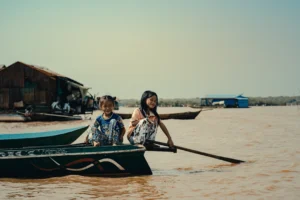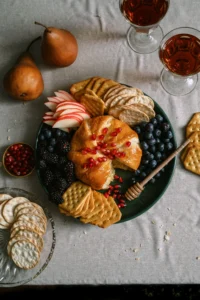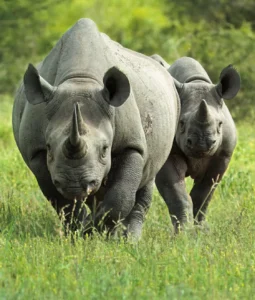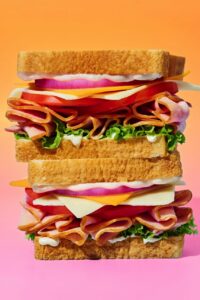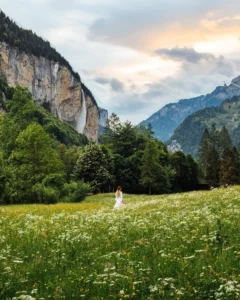
You really should be stretching yourself to the point of failure, and then when you do fail, try to take it as a learning lesson.
Mike Rosenthal
You can also listen to this episode on iTunes, Pocket Casts, Spotify, Castbox, and Google Podcasts.
Our 365 Days of
I had the honour of interviewing a very special guest whose work you’re probably familiar with: Mike Rosenthal! Mike is a well-known photographer and director who has worked with artists like Justin Bieber, Rami Malek, Armie Hammer, Jessica Chastain, and many others.
He worked with Oscar-winning director Russel Carpenter at the beginning of his career, which accidentally led to a completely different career in
We talk about:
- How Mike Rosenthal “accidentally” became a photographer
- Tips on succeeding in a competitive
photography industry - What it’s like working with some of the most famous artists in the world
I had so much fun talking to Mike about his incredible life. I have no doubt that his eloquence, stories, and passion will inspire you in some way.
Here is a preview of our conversation with Mike Rosenthal.

Q: What camera equipment do you use?
For the last 10 years or so I’ve been exclusively Canon, shooting on mostly the 5D series or their SLRs. In the last year or so, I am still using Canon as my workhorse, but I’ve also been moving into Fuji territory.
I have the X100F camera, which is kind of my knock around travel camera. I just throw it in a bag and don’t need to worry about it too much. I also bought the GFX 100 medium format mirrorless from Fuji. That has become part of my regular rotation for work shoots. So it’s starting to spread out a little bit.
Before Canon digital, I had a Contax 645, back in the film days. And then, of course, a few different Canon 35mm cameras.
Q: What is the biggest creative risk that you’ve taken?
Recently, I did an editorial with a really cool artist named St. John. I had purchased a crappy, cheap fisheye lens. Back in the day, when I was first starting out, that was when the fisheye was big the first time. The Beastie Boys were using it.
It was just one of those gimmicks that screamed late 90s, early 2000s. I just happened to be browsing – it was either Amazon or B&H – and saw a fisheye and thought, “You know what? I’m going to buy it. I don’t know when I’m going to use it.”

I brought it with me to the shoot. It was a shoot during quarantine. We were going to be outside and I wasn’t going to have real control over the light. I was going to have to use natural light.
St. John, he’s such a dynamic artist. He has a real kind of original personality. So I was trying to think of how I could exaggerate the personality a bit more. I brought two bodies with me – one with a flat lens on it and one with the fisheye. The fisheye photos, I think, turned out to be some of the best photos I took that day. It’s not something that would be an obvious choice. It’s definitely a risky choice, especially these days when people want to do everything digitally, because you have the option of going back if you don’t like it. If you shoot on fisheye, there’s no way to really flatten it out properly.
It wasn’t a huge risk because I was still shooting on a secondary camera as well. However, it was something that was a bit out of step with what I’d normally do and was a really cool path.
Q: You’ve said yourself that you’re good at putting models at ease. How do you achieve that?
Part of it is really just putting my ego aside entirely and realizing that if I’m going to get the shots that I want, I need to really tune into who this person is. In some cases, that means they may be huge, older, and super famous. The way I treat them would be different than the way I treat somebody who’s young, full of energy, and new. It’s really first, I think, reading the person. Sometimes I’ll do more research than others in terms of what they’ve done in the past and see what’s worked for them and what hasn’t. I see if there’s something that they really prefer to do or not prefer to do.
I usually ask people, “Do you have a favorite side of your face?” Less so if they’re a model. If they’re an actor, they may really have one preferred side of the face. It’s really understanding that if I want them to be comfortable, I don’t want them looking in the wrong direction. And that’s going to affect how the lighting is, that’s going to affect how the hair is done. In some cases, it might even affect the wardrobe. Then, it’s trying to really feel who they are as a person. What mood are they in on this particular day? Does it seem like they want to talk a lot? Does it seem like they want to be a little more quiet? I’ll ask them if they have a preference in music. You know, it’s kind of basic stuff.

It’s like if you have a guest coming over to your house and you really want them to feel comfortable. It’s some of the same kind of things like, “Do you want to get a drink? Let me know if anything is happening that you don’t feel good about.” If they know that you’re looking out for their best interest right away, that’s going to make them loosen up a bit.
Then the other thing is, when you’re starting out at the beginning of the day, if they haven’t worked with you before, they’re not super familiar with with you as a person. Even if they know your work but they’re not super, super intimate. In that case, you always have the question of how the day is going to go. Is this going to be a difficult day? A lot of people, even big celebrities, can be kind of insecure about taking a bad photo. Everybody’s taking a bad photo, but for them, a bad photo gets spread all around the world and they feel like an idiot.
So there’s always that question about well, I don’t know how the day is going to go. So I always try to make sure that whatever the first setup is, it’s something that is going to make them look great and it’s going to be something that goes quickly. If you can turn out a great shot and make it go quickly, they’ll know that it’s not going to be a waste of their time and that they’re in good hands.
Those are generally the rules that I play by with everybody. It’s really just reading what vibe they’re in, what mood they’re in, and what their personality is.

People & Things Mentioned In The Podcast
Check out Mike’s work:
Website
Instagram
Join Our Photography Community!




